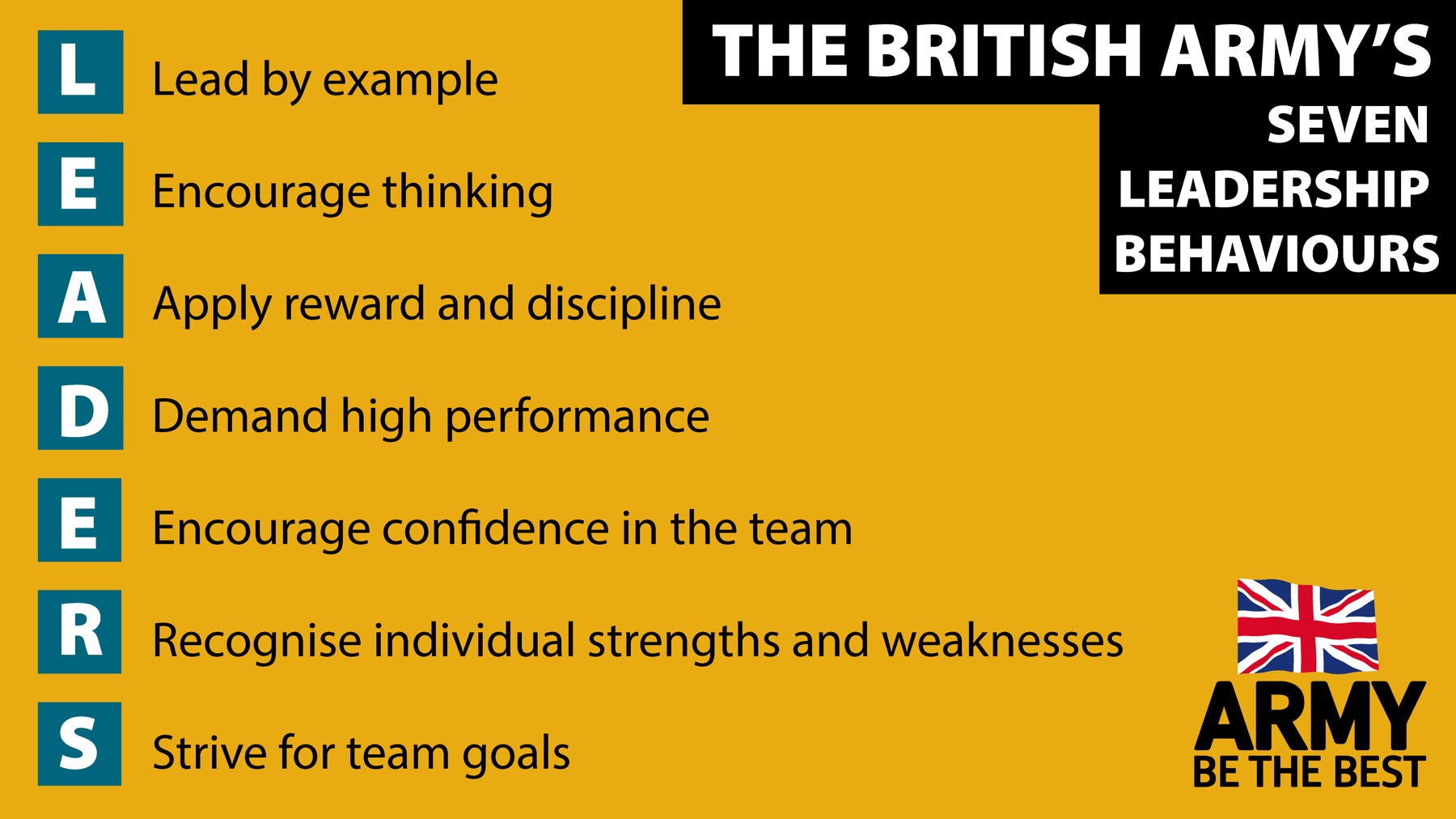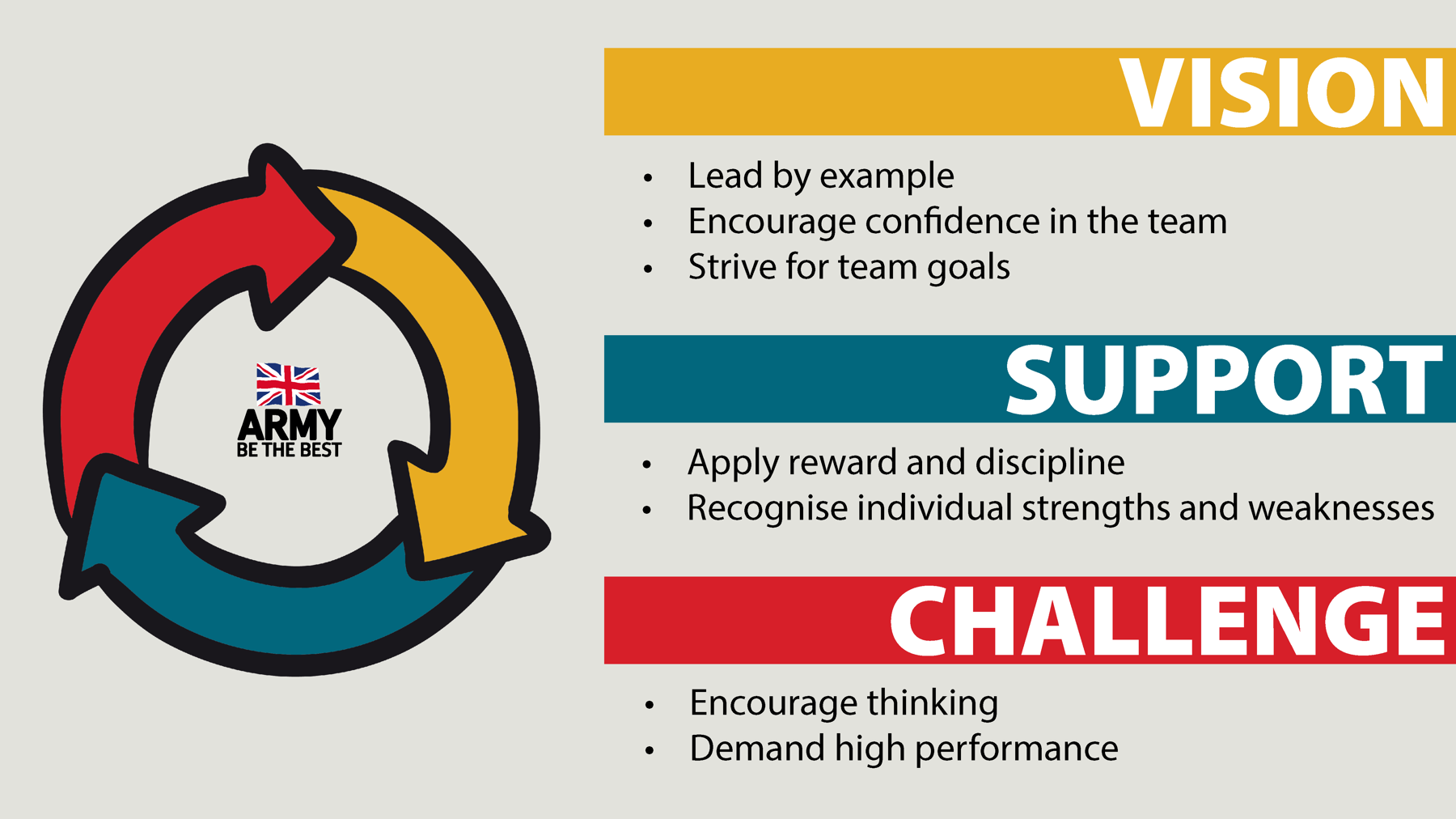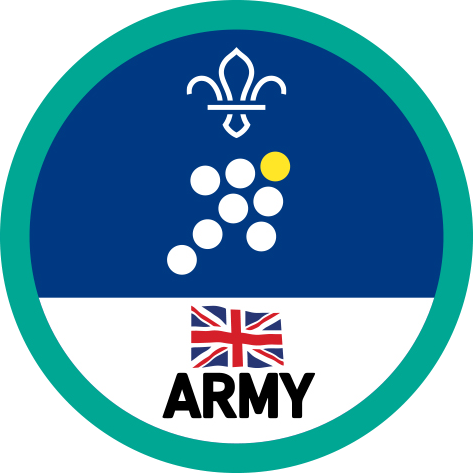Leadership with the British Army
The British Army are experts on leadership and are here to pass this on to you.

The British Army are sponsoring the Explorers Leadership Activity Badge. This exciting partnership means the British Army will be able to share their expert leadership knowledge, helping Explorer Scouts develop skills for life. The British Army also support the Scouts Mechanic Activity Badge.
Let’s talk leadership with Captain Luke
On Tuesday 8 December 2020, the British Army held a webinar about leadership. The experts spoke about what good leadership is, shared their lived experiences, and answered questions from the audience. You can watch the recording below.
To watch in full screen, double click the video

Our partnership with the British Army engages young people through Science, Technology, Engineering and Maths (STEM) activities. It also provides the advice they need to step up and take the lead.
What is leadership?
The British Army are experts on leadership. They’ve spent hundreds of years perfecting it, and have summed it up with seven leadership behaviours.

As a leader, you’re a role model to your team. You need to show this in everything you do; you can’t ask your team to do things you wouldn’t do.
We’ve all heard the saying ‘two heads are better than one’ and it’s even better when more than two people think together. Leaders tell people what needs to be done, but they don’t always tell them how to do it. This encourages everyone to think for themselves and solve problems – you may be surprised with the solutions people come up with.
Recognition and reward are great motivators; they inspire people to work hard and do their best. There are plenty of ways to recognise and reward your team, from a simple ‘well done’ to a public award.
It’s also important that people know there are consequences to their actions; it helps to remind everyone of the purpose of what they’re doing.
If something is worth doing, it’s worth doing properly. People find out what they’re capable of when they’re challenged and given space to push themselves. Start with the basics, though, and set goals you can achieve.
When you create an environment full of trust and confidence, people feel supported. This means that they feel safe trying new things, experimenting, and bringing their best to the team. The best leaders encourage confidence by giving people responsibility and chances to succeed, as part of a safe space where it’s OK to try, fail, and learn from it.
Everyone has something to offer to the team, just like everyone has areas to work on. Identify what people are good at (and where they have room to grow) before you assign tasks, then support people to work on their weaknesses to create a great team.
Bring your team together by setting goals so that everyone works towards the same purpose. The best teams put shared goals before their own individual aims. It’s up to the leader to make sure the goals everyone’s working towards are realistic and achievable.
When times get tough, good teams stick at it, carried along by a sprinkling of team spirit and motivated by the team’s success.
Putting it into practice

Leadership Q&A
Listen to Major Louise, Major Nick, Captain Luke and Corporal Channon answer leadership questions from Explorers across the UK, or download the transcript to read through the conversation.
To watch in full screen, double click the video
Lived leadership experiences
with Major Nick French
To watch in full screen, double click the video
Lived leadership experiences
with Corporal Channon Heaney
To watch in full screen, double click the video
The British Army’s seven leadership behaviours fit into a cycle of vision, support, and challenge. The best leaders are comfortable with all of the stages and show the leadership behaviours in everything they do.
Over time, these behaviours will become so natural you’ll do them without thinking twice – until then, it’s valuable to take the time to reflect and compare your behaviours to the seven leadership behaviours. Figure out what you did well, and what you can work on in future. Feedback from your team can be a great way to identify your strengths and weaknesses – hopefully you’ll have taught them to recognise your skills and give constructive feedback. Don’t forget to lead by example when you hear what they think.
